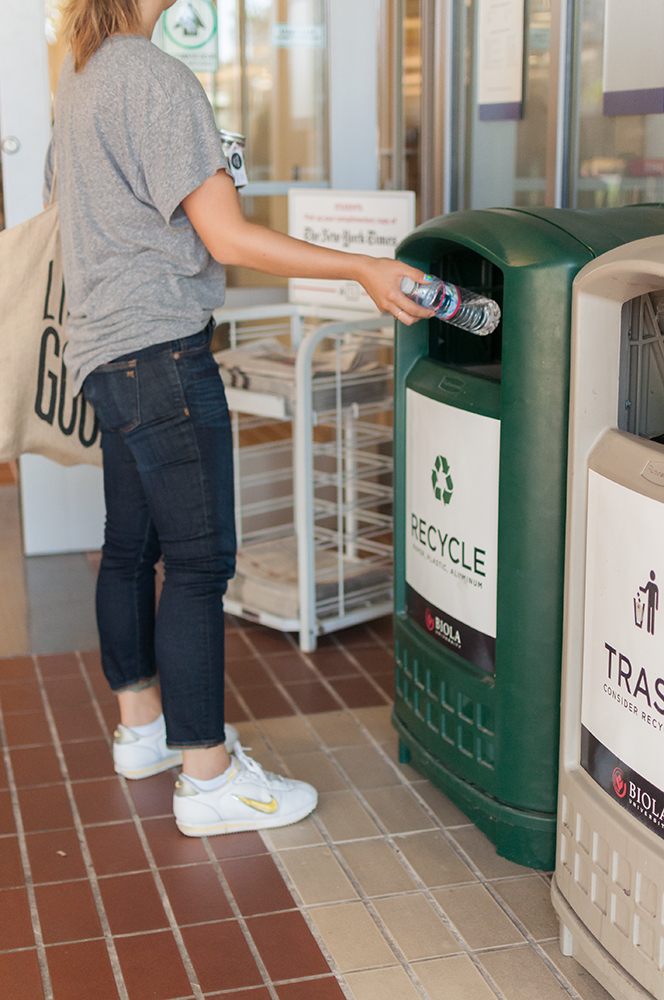As President Obama has stressed the importance of environmental change and awareness, Biola makes an effort to do the same. The facilities department has taken measures to improve the recycling program, but there is still a lot of work to be done.
“I think we’re doing pretty well; we’re making a lot of headway,” said Robert Santa, lead grounds worker.
INVESTING IN NEW RECYCLING TRASH CANS
The green recycling trash cans dispersed throughout campus are taken to McNally Lawn and sorted by facilities employees, where the recycled paper is picked up by a paper company and cardboard is recycled and baled behind the Caf. However, recycling is more than just paper and plastic — hazardous waste, batteries, computers and other electronics need proper handling.
“Electronic waste, or e-waste, is something that needs improvement,” Santa said.
Within the last few years, Biola has invested in new recycling trash cans in hopes of making it as clear where to throw away trash and recyclable items.
“We are constantly facing the difficult problem of people throwing trash away in the recycling cans,” Santa said. “People don’t understand that that contaminates the recycling, causing us to throw a great amount of it away.”
DIFFICULTIES OF RECYCLING
When she got to college, environmental science major Vanessa Pitzer bought a recycling trash can for her dorm room even though she’s frustrated at the lack of materials she is able to recycle. Even though Biola was named one of the nation’s greenest colleges in 2013, Pitzer still believes Biola can do much better.
“Biola makes it really hard to recycle. There aren’t recycling bins in classrooms or dorm rooms, we can’t recycle glass, and we are very limited regarding the kinds of plastics we are able to recycle,” Pitzer said.
Director of Environmental Science Mark McReynolds also agrees with Pitzer’s view of Biola’s recycling program.
“Two years ago I learned that Univeristy of California Irvine was diverting around 80 percent of its waste, and from what I understand, we are far below that,” McReynolds said. “You could argue that they have more money, but they have also decided that this is an important issue to invest in.”
IMPROVING RECYCLING
The Biola Apartments are an area of recycling that Biola needs to improve, he said.
“My understanding is that there is no recycling efforts at all in the Biola Apartments — there have been people who have wanted it but it hasn’t happened yet,” McReynolds said.
Upset that Biola is not able to recycle more materials, McReynolds eventually decided to take matters into his own hands. He purchased recycling containers for cans and bottles for the science building with the environmental science department money.
Despite McReynolds’ dissatisfaction with Biola’s recycling efforts, he thinks that the program has improved within the last few years.
“When I interviewed at Biola five years ago, I was told that there was absolutely no recycling in the building, so we have made some good progress,” McReynolds said.







